Recognizing Bipolar Disorder in Children and Teens
Bipolar disorder is typically a mental disorder that occurs in adults. Apparently, this disorder can also occur in children. It is the most common psychiatric problem diagnosed in children aged 6 years and older. This causes severe mood swings. In addition, people with this disorder can experience a change in attitude in a few moments.
Every parent knows if a child’s mood and behavior can change suddenly without warning. However, sometimes these changes are not caused by their development but because of bipolar disorder. For this reason, some things must be done by parents. Do not rule out the signs and symptoms have started to appear early. Children who have bipolar disorder should receive special medical attention so that the condition is not getting worse and their quality of life is better.
What are the symptoms of bipolar disorder in children and teens to watch out for? Check out the following explanation for recognizing bipolar disorder in children and teens.
Symptoms of bipolar disorder in children and teens
Quoting from the Mayo Clinic page, bipolar disorder is a psychiatric disease that can be experienced by children at any age. As a child grows older, their curiosity gets bigger and sometimes they also cannot control it well. That’s why your child often causes problems. Abstinence in children at this stage is still quite reasonable, and in most cases is not a sign of psychiatric problems.
It’s just that if the child’s mood is very easy and quick changes, you should be suspicious. Extreme mood swings may indicate that your child has bipolar disorder. Bipolar disorder has typical symptoms, which are mood swings from depression to mania episodes that occur very quickly.

Symptoms of mania in children and teens
- Mood changes very quickly, from feeling happy to being angry and aggressive.
- Having high self-esteem and often thinking unrealistically, for example feeling himself the greatest and believing if he can fly or do things that don’t make sense
- Can sleep for days without being tired or vice versa can not sleep for long periods of time and are very active in moving
- Excessive in doing something so it is difficult to divert attention to something else
- Tends to talk a lot, but the tone is too fast sometimes unclear. In addition, it is very easy to change the subject quickly.
- Doing things that are not really needed excessively or trying actions that are dangerous for him or anyone else.
Symptoms of depression in children and teens
- Often feel sad and suddenly cry
- Being lazy on the move or less enthusiastic about something
- Feeling a failure, guilty, and worthless
- Anxious about failure or rejection
- Complaining of headache or stomach ache
- In teens, they may have tried or thought of committing suicide or hurting themselves.

What parents should do for a bipolar child
Early diagnosis and treatment are the keys to managing the symptoms that arise.
Even so, diagnosing bipolar disorder in children is quite difficult, because many symptoms that arise are similar to ADHD. In fact, normal children also sometimes experience these things. Many people diagnose their children directly with ADHD and give medicine. In fact, the drug has the potential to trigger mania in children with bipolar disorder.
Therefore, there are some things that must be done by parents so that children do not easily experience a recurrence of bipolar disorder.
1. Treatment
Initially, you have to really make sure that the child’s mother has bipolar disorder. After that, give the medicine needed so that the disorder can be suppressed. Use notes or anything that can be remembered for scheduling drug consumption. If your mother needs to take medicine at school, try to discuss it with her teacher so that she can be helped to take the medicine.

2. Monitor Side Effects
Most drugs used to suppress bipolar disorder, such as mood stabilizers, antipsychotic drugs, to antidepressants, must be monitored properly. Because, children are more susceptible to side effects from the drug, such as weight gain and cholesterol. Therefore, if you see anything abnormal, immediately discuss it with your doctor.
3. Consider Family Therapy
A child with bipolar disorder can irritate the whole family. This can put more pressure on you and your partner. In addition, other children may be jealous of unbalanced attention. Therefore, giving understanding to other children is no less important. This will open the minds of the whole family to the disturbances experienced by his sister or brother.
Those are some ways you can do as a parent if your child has bipolar disorder. This can be effective to reduce the disruption that occurs so it does not easily recur. And most importantly, do the regular treatment so the doctor can see your child’s health.
How about teenagers? What should parents do to help them? Sometimes teens with bipolar disorder have problems with socializing. Let’s check out the following tips on how can we encourage teens with bipolar disorder to be comfortable socializing. First, parents must be aware of the causes.
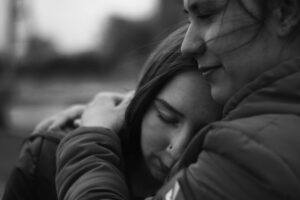
Causes of bipolar disorder in teens
Until now no known cause for bipolar disorder in teens. Researchers believe that these brain disorders are factored in many things, such as:
- Abnormalities in the brain. An imbalance of certain chemicals (neurotransmitters) can disrupt the body’s system of regulating mood.
- Genetic. The risk of bipolar disorder is greater in people who have family members with this condition.
- Environment. Bipolar disorder in teens can occur due to pressure in the environment, such as the death of family members, divorce parents, victims of abuse or violence that cause trauma.
Tips for encouraging teens with bipolar disorder
Bipolar disorder can affect the quality of life of teenagers later in life. For that, they need care and support from the people around them. Here’s how you can encourage teens with bipolar disorder.
1. Sharpen your knowledge about bipolar disorder
Dealing with teenagers who has bipolar disorder is not easy. You need to increase your knowledge about this disease by reading books, articles, or other accurate information about bipolar disorder. If necessary, consult a psychologist or psychiatrist.
2. Face them patiently but still pay attention to their needs
Teens with bipolar disorder can feel depressed and super active (mania episode) so they can test your patience in dealing with them.
The key is to never give up and always make sure your child feels comfortable and safe with you.
3. Strengthen your connection with your child
Communication is the key to strengthen your relationship with your child. You need to listen to how they feel attentively.
This helps you find out how he feels when he feels healthy, depressed, or experiencing a manic episode. Your observations can help the therapist or doctor determine the right treatment.
4. Help them to carry out their daily activities
Teens with bipolar disorder tend to have difficulty doing normal daily routines and often do dangerous actions.
For that, they need your help in several ways, including:
- Set a schedule for routine medication: taking medication, or accompanying them on therapy.
- Make daily activities schedules, such as eating, sleeping, bathing, sports, and other activities.
- Help prepare their needs.
- Help them socialize with friends and family.
Also read: MEDITATION BENEFITS FOR CHILDREN
So, after you read the article above, do you think you recognize if your child has bipolar disorder? Or maybe you know your child has severe mood swings but you don’t know what to do?
If your child shows the above characteristics, you should immediately consult a pediatrician and a trusted psychiatrist to get a more accurate diagnosis.
Stay safe, happy, and healthy!

—————————————————————————————————————————————–
This post may contain affiliate links, which means I make a small commission off purchases, at no extra cost to you. Read my full disclosure here. Thank you for supporting the work I put on this site!
—————————————————————————————————————————————–
We Stress Free does not provide medical advice, diagnosis, or treatment. However, if you need someone to talk to and want to make friends, please feel free to reach me at ferra@westressfree.com. If you would like to REDUCE your STRESS and are interested in doing an ONLINE THERAPY, you can do so here.
—————————————————————————————————————————————-
The information contained in this article is for educational and informational purposes only and is not intended as health or medical advice. Always consult a physician or other qualified health provider regarding any questions you may have about a medical condition or health objectives.
Thank you for reading today’s topic: Recognizing Bipolar Disorder in Children and Teens

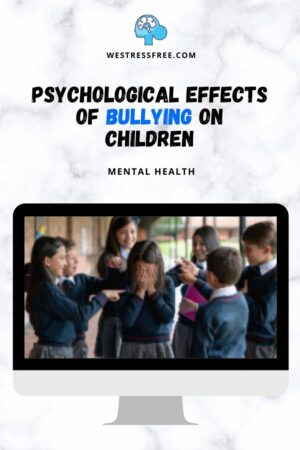


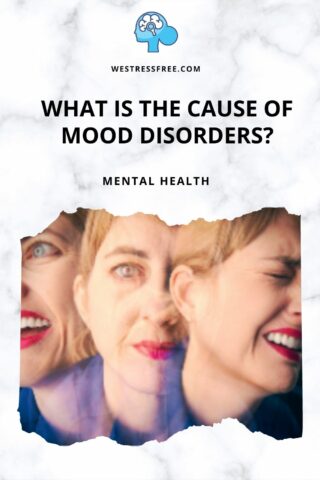
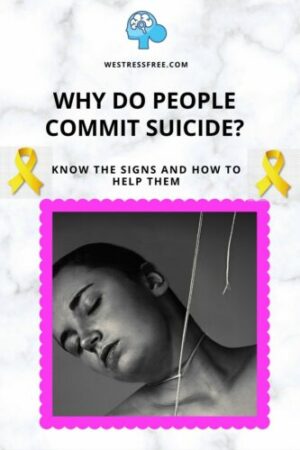


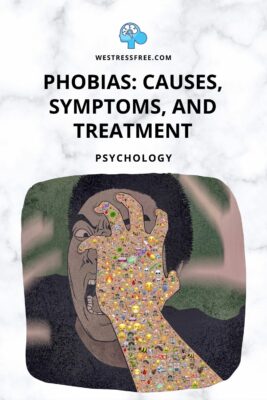

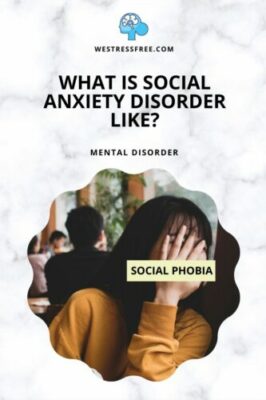
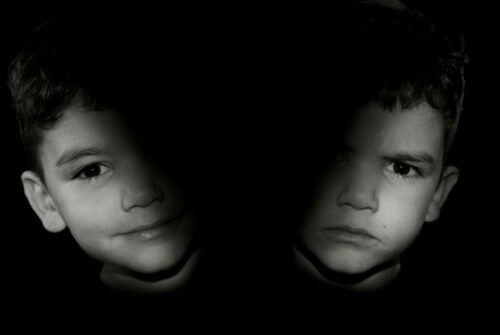



This is one of the first articles I have read that gives clear and concise advice and solutions. With younger children, it would be very easy to overlook this disease. Children can be prone to mood swings anyway. Your tips for spotting the possible symptons are very important.
We had our youngest tested for ADHD, luckily he didn’t test positive. It is so difficult to diagnose, as much of a child’s behavoiur can be erratic, that’s just part of being a child. I wonder how many have slipped through the net, over the years. Many would have been labelled as just going through a phase, or it’s just the ‘terrible two’s’.
Once a diagnosis has been made and medication prescribed, it is so important to have a routine for administering the drugs. Creating a schedule is key to being able to monitor any of the possible side effects, it is also good for seeing how well the medication is working. Some people can react differently to the same drug.
Hello Twack,
Thank you for taking time to visit my site, read my post and leave a comment. I really appreciate your kind words in your comment! 😃
Glad you found this article useful.
Yes, I agree with you. Sometimes I think that medicine is just a quick fix that can backfire one day due to the possible side effects such as bad dreams that will lead lack of sleep, then less concentration at school, more mood swings, etc. It really is important for parents to be observant of their children’s behavior changes and how they react to the medications.
Once again thanks for your nice comment. Stay safe,happy and healthy!
Ferra
You did an excellent job helping parents recognize their child might be experiencing Bipolar Disorder, and it is difficult to diagnose many of the mental health issues in a child especially when they can’ really explain what they are feeling.
I believe in going with natural treatment before medications, so are there any more natural treatments for this disorder parents could try?
Awesome article
Jeff
Hello Jeff,
Thank you for taking time to visit my site, read my post and leave a comment. I really appreciate your kind words in your comment! 😃
Glad you found this article is useful. Yes, I believe there are natural treatments like yoga/meditation, doing positive things like hobbies, avoid self-isolation a.k.a stay connected to family and friends, etc.The most important thing parents can do is LOVE. Sometimes they just want to be heard. Doing reckless things could be their way of trying to get attentions.
Once again thanks for reading this post and leaving a nice comment, Jeff. Stay safe,happy and healthy!
Ferra
Hi,
Thank you so much for your article. It was very informative and useful, especially for parents whose children have strange behaviors. I believe it is important to take action when you see the first symptoms in your child’s behaviour.
I hope more and more parents realize the importance in noticing the small details and get more engaged with their kids, after reading this article.
Something new that I learned was that many people diagnose their child directly with ADHD and give medicine. I had no idea that the drug can trigger mania in children with bipolar disorder. This is something more people should be aware of.
Thank you again and I wish you best of luck!
Hello Delqna,
Thank you for taking time to visit my site, read my post and leave a comment. I really appreciate your kind words in your comment! 😃
Glad you found this article is useful.
Yes, sometimes drugs like antidepressant can give side effects that will only worsen the situation. It’s a kind of a quick fix that might backfire one day. Bad dreams for example. It will result in lack of sleep, then lack of concentration and they won’t make a positive judgement on things. So, it would be bad. That said, some drugs might work better on others. Who knows… Sometimes doctors can only help with medications but psychiatrist and support group might work better. I think family and people closer to us are the best support system though against mental health.
Once again thank you for your nice comment. Stay safe,happy and healthy!
Ferra
This can be rather very serious especially in children when considering the risk factors that is associated with bipolar disorder and how best to tackle it especially in children. Well! Thanks for pointing out a lot here and the things that needs to be looked out for to ensure that the kids are actually staying right. And to also be able to spot any form of bipolar disorder in kids. Thanks
Hello Ella,
Thank you for taking time to visit my site, read my post and leave a comment. I really appreciate your kind words in your comment! Glad you found this article useful.
Stay safe,happy and healthy!
Ferra